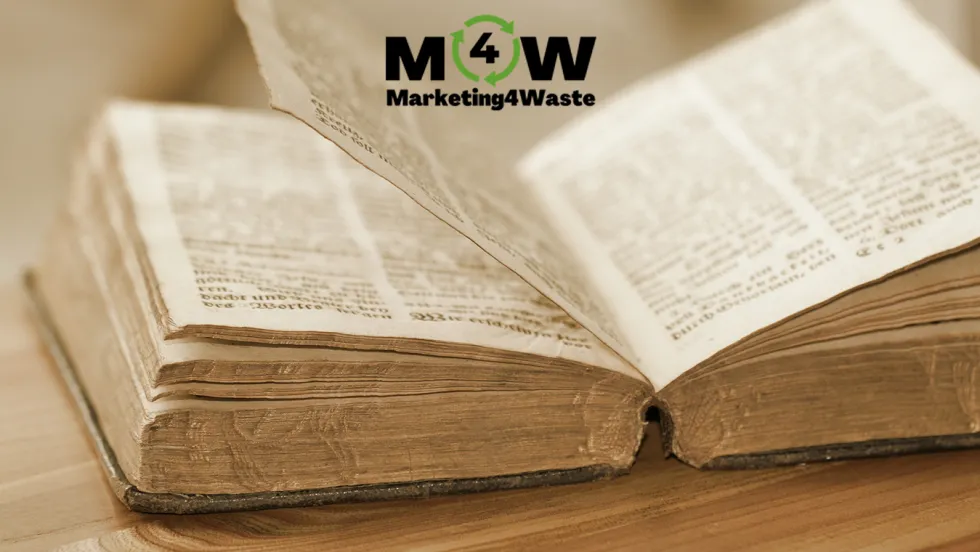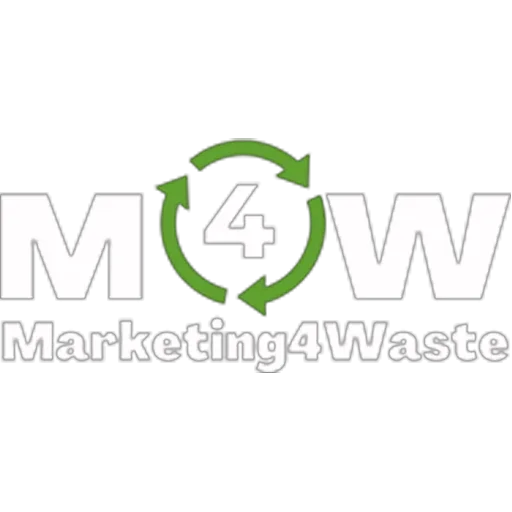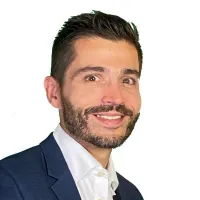Increase the Revenues of Your Waste Company With the Tips Shared in Our Blog Articles

False Hopes are more Dangerous than Fears (J.R.R. Tolkien)
The False Hope of Zero Waste and How to Use Its Power to Create Strong Brands in Waste Management
As Tolkien wrote in his Epic Novel “The Children of Húrin,” false hopes are more dangerous than fears and will not keep us warm this winter” what we see in waste management is incredible.
If you open the newspaper or watch tv shows, many people talk about the problem of waste, creating false hopes about the zero waste goal.
Below, you can easily see what I found today searching on Google News with the keyword “zero waste.”
Tons of ideas disconnected from reality.
But what is terrible is that many organizations, typically political, are sustaining these wrong ideas about the possibility of achieving zero waste.
I don’t want to cause controversy about that, but, as in my role, I want to show you how to use these misconceptions to your advantage.
This is because what they are doing is the creation of false hopes.
For that reason, let me first explain what hopes are and how they work on our minds.
Hope is one of the greatest motivators for purchases, choices, and changes. For example, a woman buys a new face cream that offers the hope it will make a difference in her wrinkles. A runner purchases a new pair of shoes because they are lighter, showing him the possibility of being faster. A family decides to avoid using plastic because they contribute to the zero waste goal in that mode.
In short, hopes are expectations of something desired.
Expectations.
What moves people to expectations?
Usually, the implied possibility that the use of a product, the use of a service, or the reduction of the consumption of a good, will provide a better future.
Better future for themselves and their relatives.
But we know that the future benefit is not assured, nor is it guaranteed.
It’s a dream, a possibility, and, as in the case of the zero waste idea, it is a fantasy.
If you think about the examples I mentioned above, the woman that purchases the face cream to look younger hopes that her wrinkles will reduce but, in most cases, doesn’t obtain the result because there are a lot of factors where the cream doesn’t act, like stress at work, sun, nutrition, and more.
Now, could you take a look at the idea of the runner who purchased the running shoes thinks to achieve the results of his teammate that uses the same shoes? Of course, he believes the boots will make the difference and offer a better grip or proper support, but training (mind and body) is the most crucial factor to consider to change the results.
Watch the family that decides to avoid plastics in its home. It uses only paper bags to avoid packaged foods and drink water from its tap. Yet, simultaneously, it continues to purchase pile jackets to win the cold winter where it lives, to use sunglasses with plastic lenses, and more and more.
The correct solution will be to follow the proper disposal process for all the waste and to try to recycle the most significant amount of waste produced.
I showed you these examples because, as you can easily imagine, everything starts from desires.
Even the idea of Zero Waste touches people's desires, promoting the hope of a better future for the next generations and leaving our planet in better conditions.
The hope of a planet in better conditions for our children and the children of our children touches all of us.
And the organizations that created the message ZeroWaste know that very well.
For that reason, to achieve the goal, they touched on one of the most diffused desires: species conservation.
It’s something natural in our brains and connected with the sense of protection that we offer our children when they fall or are about to make a mistake.
Anyway, it works better if, behind this stimulus, there is the credibility of the people who invite you or offer you the product or service.
Following the abovementioned examples, you can easily understand that if Cate Blanchet talks about the advantages of an anti-age cream, women find credibility in the product.
If Usain Bolt said that his new shoes are lighter than the previous ones, the runner thinks that he would be faster thanks to the same shoes of Usain.
But what happens to waste?
No one nowadays is demonstrating results about the ZeroWaste idea.
They are only using actors, politicians, and influencers to support the idea, like for a cream or a pair of shoes.
They are using their credibility to support an idea taking advantage of themselves in terms of visibility.
No one is showing results in that.
That’s the point.
Or better, that’s the strike angle.
Indeed if you are a waste manager or the owner of a waste company, you have to use this “gap” to create the real difference.
How?
You are creating a powerful personal brand and using the power of your company brand. I know that is something familiar in waste management. But, still, if you think about your company, probably, its brand is known in your city or your country because, in the past 10-20-30 years, it supported communities in waste collection.
Going in-depth, people know your brand for what your company is doing, but to support you, they need to know what you are doing with the waste you collect from their houses, businesses, etc.
And here, there is the importance of the creation of credibility.
If you present yourself and your company as a credible person representing a credible company, then what you say will elicit a feeling of confidence on the part of the people.
And believe me; you’re more authoritative than actors and politicians talking about Zero Waste. The only fact is that you are not using your power.
No one knows you as an authority in your field.
People know your company's name but don’t know how many quantities of waste your plants are treating and recycling. People don’t know that you’re saving 10,000 trees a year from being cut down, for example, thanks to your recycling process.
Why don’t people know that?
Because you are no one in front of their eyes.
Because your company is a company that collects waste and, in their minds, is not contributing to solving the waste problem.
And believe me, you’re more authoritative than all the people talking about the problem romantically.
But to release your power, you need to be seen as this authority.
The only way to achieve that is with the power of your brand.
Your brand and your company brand.
Two faces of the same coin.
But she managed in different ways.
Talking about a personal brand is the image people see of you, and it’s based on how people look at you in real life and how the media portrays you. The impression people gain from the information about you is available online and offline.
The power of a personal brand is authenticity, which means how your daily life looks in connection with what you do.
In waste management, a solid personal brand could be built by highlighting how everything in your life is about recycling, from items purchased to how waste is managed within the home to how your children engage in waste management at school.
And to do that, you need to create visibility on that.
That means using social media, local magazines, local newspapers, interviews, and all the PR and public relations tools.
As my teacher, Al Ries, said, “Brands are built with PR.”
But that is a starting point.
I opened this newsletter telling you about the false hope of Zero Waste and how to use it to build your brand.
Yes, because to win this challenge, you need to talk about the natural solutions that are now solving the waste problems.
That means you must contrast the mainstream message and the real solution to a problem created by mainstream misinformation.
For example, when the article talks about the ZeroWaste idea, you can talk about how the old clothes are given to charity associations in your home and how the organic waste is put in the compost box to create a natural fertilizer for your garden. And telling that you have to affirm that is the only ZeroWaste possibility.
Working in that way, you’ll build your authority and personal brand, which will also help the growth of your company's brand grow.
Remember that companies are groups of people and usually reflect the habits of the people inside.
I would like to give you an example.
Do you remember the story of Robin Hood?
There were many other refugees in the Sherwood forest with Robin, but the leading voice was Robin’s voice. Friar Tuck, Little John, and the others were only supporters of Robin.
Robin was the leader of the team, as you are the leader of your company
For that reason, you need to build, first of all, your brand to support the growth of your company's brand.
The values represented by your brand will also be seen as the value of your company.
That creates credibility and trust in you and your company.
And the first one amplifies the results of your company brand.
The idea of Zero Waste is offering you one of the most significant opportunities, but you need to be able to use it to your advantage.
As an example, the pandemic unattended the idea of zero plastic.
People promoting the idea of zero plastic disappeared, demonstrating that they didn’t know the problem, but that was mediatic.
If you are in plastic recycling, you can promote that the only way to solve the plastic problem is to increase the proper segregation of plastics from urban and solid waste. To do that, you can start with your daily activities and how they can change the plastic problem if promoted widely.
We are doing that. You’re taking the hopes of the people supporting zero plastic, and you are reactivating their dreams about a better future, a life where the animals do not suffer for our waste, and more and more.
This will be possible thanks to your brand.
As I mentioned, false hopes allow you to increase your positive impact on our planet and pass from being the waste collector to becoming the Rescuer of our Planet.
If you want to become the Rescuer of our planet, book a Discover call with us by following this link. You can also follow our social media pages to find out more.
Sam,


© 2025 Marketing4waste - All Rights Reserved,
Marketing4Waste is a brand of MiM MarketingInterimManagers LLC
+1 801 804 5730

